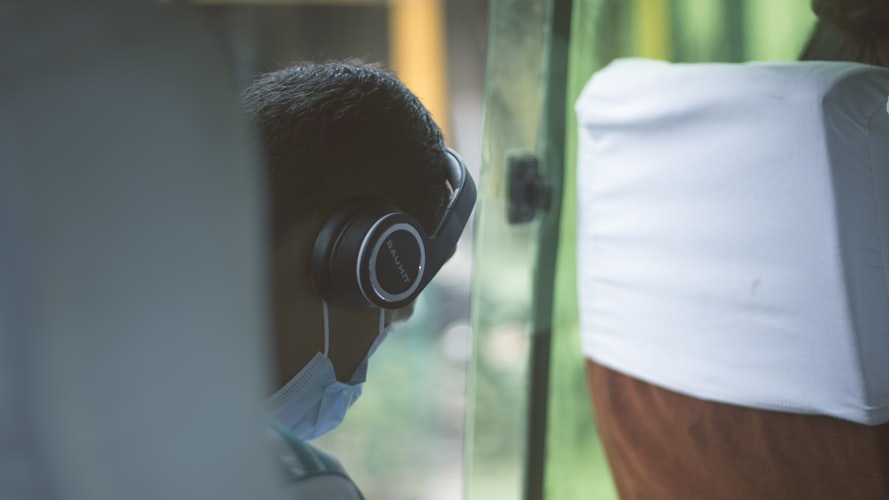Every year, thousands of young people from the Northeast migrate to New Delhi and other cities in search of jobs and education. But most aren’t treated well; they’re called ‘chinkis’ – a racist slur – and are commonly harassed by batchmates, landlords, employers and others because of their ethnicity.
And now, with the outbreak of the coronavirus, the racist comments have doubled.
The virus, which started in Wuhan in China in December last year, is looked upon as a ‘Chinese virus’– as US President Donald Trump said . As the panic spreads across India, people from the Northeast are being called ‘coronavirus’. Recently, a video went viral of a woman covering her mouth at Reliance mall in Pune when she saw another woman from Mizoram. The woman can be seen shouting when she was confronted.
In these times of Corona Virus, a Mizo girl in Pune faced racism as she has mongolian/Chinese features. indians are always being racists when it comes to North East. pic.twitter.com/tnG0K26mRf
— Akhu Chingangbam (@Akhucha) March 9, 2020
The Pune Mirror quoted the woman who was harassed as saying, “I have lived and worked here for ten years. Just recently, two instances of intolerance have left me sad and insecure. The woman at the mall kept rudely gesturing like I am infected and said ‘baap re’. When I asked her what’s wrong, she screamed so loud that mall staff had to intervene. I just left without buying anything,” she said.
A lot of other students in Delhi University have faced similar experiences.
Neha, a student from Assam, says that she gets called ‘coronavirus’ and people tell her that the virus came from China to India through the Northeast. “This is quite sad and ridiculous at the the same time, but there is nothing we can do,” she said.
Reema, another student, recalls how she and her friends were called “bearers of coronavirus”.
“This was probably one of the worst days of my life. My friends and I were walking to a metro station when three men threw a giant water balloon at my friend’s breasts. The minute we got inside the metro, someone frowned upon us and said these Chinese people are so shameless, they walk around spreading coronavirus everywhere.
Also read: The Only Treatment for Coronavirus Is Solidarity
Noihrit Gogoi, another DU student, has always been called various names for the way he looks and for speaking Hindi in a different accent. The name-calling, he says, has gotten worse in recent times.
In a story in Pune Mirror, young techie Hmingtei Chhangta – who hails from Manipur and lives in Pune – narrated her experience of how a few men said “coronavirus aa gaya (coronavirus has come)” when she entered a grocery store.
Namguiling Panmel, also from Manipur, spoke about being called Chinese while returning from a friend’s place.
“While I was returning, I took off my helmet and hung it on the two-wheeler I was riding. A traffic police stopped me and asked for my documents and license, which I provided. He asked me to a pay a fine for not wearing a helmet and I did. But then he said that he would let the other helmet-less drivers off except me,” she says.
She was shocked. “He said that woh log to local aadmi log hai, par tum to China se hona. Kisko pata tere paas coronavirus hai ki nahi (They are from here but you are from China. Who knows if you are infected with coronavirus or not).”
In light of these incidents, Alana Golme – general secretary of North East (NE) support centre – has written a letter to the ministry of home affairs (NE division). In the wake of the new pandemic, she wrote, people from the Northeast India are being called “coronavirus” – a blatantly racist statement.
The Chinese are experiencing worse – there has been a rise in racist attacks against people from China across the globe.
Jonathan Mok, a 23-year-old from Singapore, was allegedly attacked while walking down Oxford street in central London on February 28. He told the BBC that a group of four men told him, “We don’t want your coronavirus in our country” as they punched and kicked him.
Similarly, on March 5, an exhibitor at a UK art fair dropped a Vietnamese art curator, saying that her participation would be seen as “carrying the virus”.
Aamir Altaf is a student of political science at Aligarh Muslim university and can be reached at aamiraltaf16@gmail.com
Featured image credit: Unsplash

